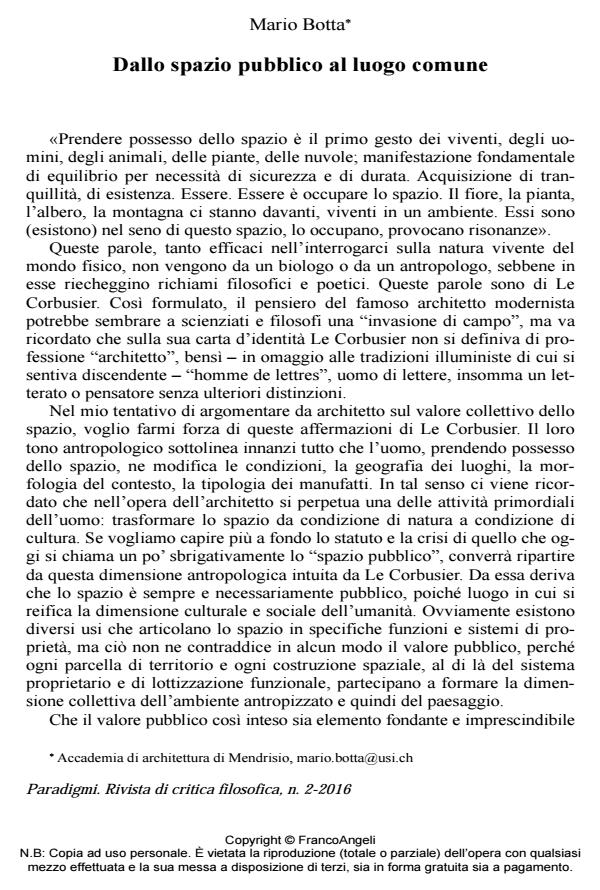Between Architecture and Philosophy
Journal title PARADIGMI
Author/s Mario Botta
Publishing Year 2016 Issue 2016/2
Language Italian Pages 5 P. 103-107 File size 127 KB
DOI 10.3280/PARA2016-002007
DOI is like a bar code for intellectual property: to have more infomation
click here
Below, you can see the article first page
If you want to buy this article in PDF format, you can do it, following the instructions to buy download credits

FrancoAngeli is member of Publishers International Linking Association, Inc (PILA), a not-for-profit association which run the CrossRef service enabling links to and from online scholarly content.
For an architect, "space" means always "public space". In fact, it is within it that the cultural and social dimension of human nature expresses itself. In the European city, with its typical historical stratification, we recognize our own identity. In the places where this close relationship did not occur, the so-called "non-spaces" were born. One basic principle is therefore to consider "the past as a friend". Our relation with the past always implies the relationship with time, and our relation with space also refers to the context where the future generations will continue to operate. The city must keep on talking to us as a public space: a theory of democracy is rooted on this very notion. To guarantee that space will continue to be an open place where disagreement and dissonance may find some expression is a task that brings together both architecture and philosophy, both memory and project. Therefore, the work of the architect is also a political work. Public space has to give voice to social needs by placing itself in the intersection between the material sphere, the social sphere and the political and institutional sphere. Social practices will thereafter take possession of public spaces in an unpredictable way. "Having right to the city" means to have the same right to public space: but this does not occur in the suburbs of the big European cities. Furthermore, migration flows are challenging the cities with issues of huge importance that have to be solved by respecting the internal "polyphony" of the cities themselves.
Keywords: Public space, Topos, Memory, Civitas, Context, Uncertainty, Öffentlichkeit, Democratic Freedom, Pluralism, Private-Public, Social Capital, Cultural Capital, Migration Flows.
Mario Botta, Dallo spazio pubblico al luogo comune in "PARADIGMI" 2/2016, pp 103-107, DOI: 10.3280/PARA2016-002007